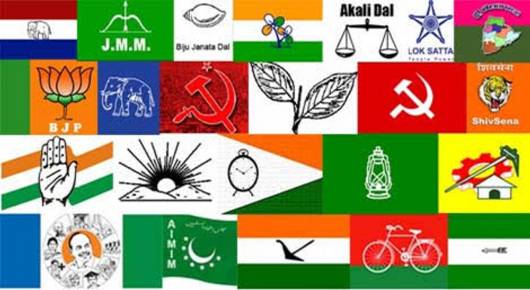Description

Copyright infringement not intended
In News
- The Election Commission of India has banned both the groups led by former Maharastra Chief Minister Uddhav Thackeray and State Chief Minister Eknath Shinde from using the Shiv Sena party name and symbol in the upcoming Bye-elections till the final decision.
- The Commission said that both groups may choose symbols from the list of free symbols notified by the Election Commission for the current bye-elections.
Election Symbols
- The Election Commission of India is authorized to recognize political parties and allot symbols to them under the Election Symbols (Reservation and Allotment) Order 1968.
- Electoral symbols were introduced to encourage voting, as illiterate people can’t read the party name, but they can easily identify the party with their symbols.
- Electoral symbols allocated to political parties are used by them during election campaigning and are present on Electronic Voting Machines (EVMs).
- The Election Commission of India grants the status of National or state parties based on the party's electoral performance.
- They are known as Recognized political parties and they enjoy certain privileges like allocation of the party symbols, provision of time for political broadcasts on television and access to electoral rolls.
- A Political Party is called a Recognized Political Party if it meets certain conditions.
- Won a certain percentage of valid votes or a certain number of seats in the State legislative assembly or the Lok Sabha in the last election.
- There are 2,360 political parties registered with the Election Commission of India and about 50% of them are unrecognized parties.
- Unrecognized Political Parties are those newly registered parties which have not secured enough percentage of votes in the assembly or general elections to become a state party, or which have never contested elections since registered.
- They don’t enjoy the benefits extended to the recognized parties.
- The Election Commission is the only authority to decide issues on a dispute related to electoral symbols.

Election Commission of India
- It is a permanent constitutional body.
- Article 324 of the constitution establishes the Election Commission of India.
- It was established on 25th January 1950.
- It supervises the conduct of elections to Parliament and Legislature of every State and elections to the offices of President and Vice-President of India.
- It consists of the Chief Election Commissioner and two Election Commissioners.
- Originally, there was only Chief Election Commissioner, there were no Election Commissioners.
Appointment of Election Commissioners
- The President appoints Chief Election Commissioner and Election Commissioners.
- Tenure of 6 years, or up to the age of 65 years, whichever is earlier.
- The status, salary and perks of election commissioners are equivalent to Judges of the Supreme Court of India.
- The Chief Election Commissioner can be removed from office only through impeachment by
- Other members can be removed by the President in consultation with the Chief Election Commissioner.
- The President may appoint Regional Election Commissioners in consultation with the CEC before elections to the Parliament or Assemblies.
- The Chief Election Commissioner cannot hold any office of profit after retirement.
- The Commissioner cannot be reappointed to the post.
Powers of the Election Commission
- The EC enjoys complete autonomy and is insulated from any interference from the Executive.
- It also functions as a quasi-judicial body regarding matters related to elections and electoral disputes.
- Its recommendations are binding on the President of India.
- However, its decisions are subject to judicial review by High Courts and the Supreme Court acting on electoral petitions.
- During the election process, the entire Central and state government machinery (including paramilitary and police forces) is deemed to be on deputation to the Commission.
- The Commission takes effective control of government personnel and movable and immovable property for the successful conduct of elections.
Functions of the Election Commission
- Demarcation of constituencies.
- Preparation of electoral rolls.
- Issue notification of election dates and schedules.
- Establish and enforce a code of conduct.
- Scrutiny of nomination papers of candidates.
- Scrutiny of election expenses.
- Allot symbols and accord recognition to political parties.
- Render advice to the President and Governors regarding the disqualification of MPs and MLAs.
- Allot schedules for broadcast and telecast of party campaigns.
- Grant exemptions to persons from disqualifications imposed by judicial decisions.
https://newsonair.gov.in/News?title=EC-freezes-Shiv-Sena%26%2339%3bs-%e2%80%98bow-%26-arrow%e2%80%99-symbol%3b-asks-Eknath-Shinde-%26-Uddhav-Thackeray-camps-to-choose-new-symbol&id=449057
https://t.me/+hJqMV1O0se03Njk9
















